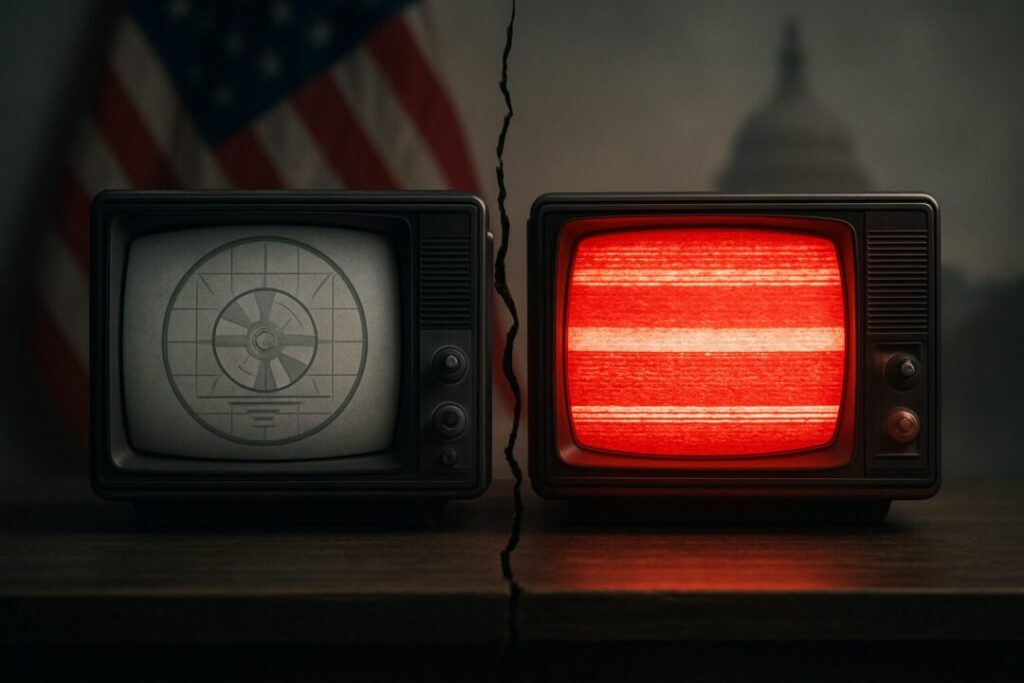By now, you might have heard something about changes at NPR and Fox News.
Let’s start with NPR. Edith Chapin, who’s been with the network for 13 years and recently served as both editor-in-chief and acting content chief, just announced she’s stepping down. She says it’s a personal decision, not political – but the timing? Well, it’s hard to ignore.
Just months ago, Republicans in Congress voted to strip over $1 billion in taxpayer funding from NPR and other public broadcasters after longstanding concerns about liberal bias.
Chapin’s exit comes after a string of controversies at NPR.
In 2024, veteran editor Uri Berliner published a blistering essay accusing NPR of pushing left-wing narratives while ignoring key stories like the Hunter Biden laptop, the COVID lab-leak theory, and the flaws in the Trump-Russia investigation. NPR suspended him, and he later quit.
Even NPR’s own public editor, Kelly McBride, admitted that the network’s staff is mostly progressive. Critics argue that this “groupthink” has damaged trust.
Fox News: New Faces, Familiar Direction
Now let’s look at Fox News. Unlike NPR, Fox isn’t losing funding, but it is making changes.
One of the biggest came in December 2024 when Neil Cavuto, who’d been with the network for nearly three decades, stepped away. He was known for challenging politicians on both sides, including President Trump.
Cavuto was replaced by Will Cain, a younger host who is more outspoken in his support for Trump.
That move wasn’t random. It signals that Fox is leaning even more into opinion-driven content, which has long been a strength (and for some, a criticism) of the network.
Here’s where things get even more interesting.
Since Trump returned to office, he’s appointed at least 19 former Fox News contributors and hosts to senior roles in his administration. That includes Pete Hegseth as Defense Secretary, Tom Homan as the new border czar, and Dr. Janette Nesheiwat as Surgeon General, though Nesheiwat’s nomination was withdrawn in May.
Critics say that blurs the line between media and politics. Supporters say it shows the president wants people who aren’t afraid to speak plainly and stand up for conservative values.
Two Different Stories, Two Different Spins
Fox News has been quick to cover NPR’s shakeup. Articles on its website have pointed out the timing of Chapin’s exit and highlighted quotes from conservatives calling NPR biased and out of touch.
On the flip side, Fox hasn’t said much about its own internal moves. Changes like Cavuto’s departure haven’t made big waves on Fox’s platforms, where the focus stays on broader political stories and the Trump administration.
Meanwhile, MSNBC, The Washington Post, and other liberal-leaning outlets have barely touched the NPR story. That might be because they don’t want to give conservatives ammunition – or maybe they just don’t think internal media changes matter to their viewers.
But they do matter. These moves shape what stories get told, how they’re told, and who’s trusted to tell them.
What It Means for You
When NPR loses a top editor and over a billion dollars in funding, it’s a sign that Americans are tired of being told one side of the story.
When Fox leans more into opinion and its stars land in the White House, it shows that media and politics are more connected than ever.
Whether you think that’s a good thing or not, it’s happening, and we should be aware. Trust is on the line.
More than ever, people are looking for news that actually reflects their values – not just the values of coastal elites or Beltway insiders.
This article was written with the assistance of AI. Please verify information and consult additional sources as needed.




